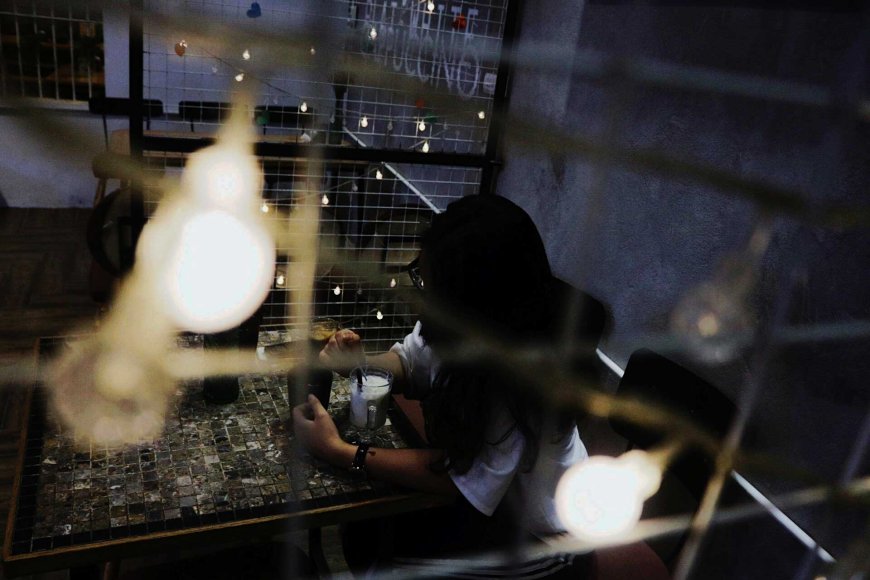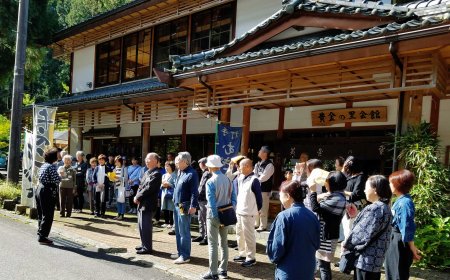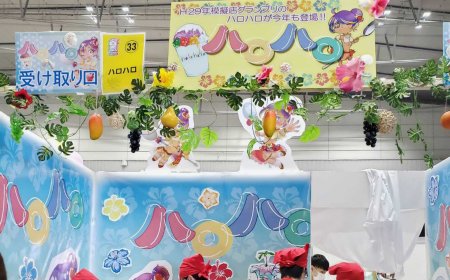Bocchi Culture: Japan’s Loner Lifestyle
Bocchi culture, a growing trend in Japan, reflects the increasing normalization of living and enjoying life alone.

The Rise of Bocchi Culture
In recent years, the term “bocchi” has gained widespread recognition in Japanese social media, symbolizing a cultural shift toward embracing solitude. "Bocchi," which loosely translates to “aloneness” or “loner,” is a slang term used to describe people who often find themselves alone, either by choice or circumstance. Whether used humorously or with genuine reflection, the term has become a part of everyday life in Japan, where the solitary lifestyle is increasingly common.
But what lies behind the rise of "bocchi" culture? How does Japanese society support this loner lifestyle, and what are the implications for those who live this way?

What Does "Bocchi" Mean?
The word "bocchi" is a contraction of "hitoribocchi," which stems from "hitori" (one person) and "bocchi," believed to come from "houshi" (Buddhist priest), representing solitude. While its origins carry some Zen-like connotations, the modern meaning tends to be bittersweet, evoking a sense of loneliness but also self-deprecation. Bocchi can refer to being alone in a humorous, tongue-in-cheek way or as a more somber reflection on one's social isolation.
For example, the term "kuribocchi" blends "kuri" (short for Christmas) with "bocchi," referring to someone spending Christmas Eve alone. In Japan, Christmas is celebrated as a romantic holiday, so being alone on this day often highlights a lack of companionship in a light-hearted way. Likewise, "bocchi nomi" (drinking alone) and "bocchi meshi" (eating alone) are other common variations, often used to express everyday instances of solitary behavior.

The Infrastructure Supporting Bocchi Culture
Japan has long been a country where solo activities are normalized and even encouraged, particularly in urban areas. The country’s infrastructure and cultural norms support this lifestyle, making it easy for people to live alone and spend time without social interaction.
For instance, many restaurants are designed to cater to solo diners, offering individual counter seating that ensures privacy. Popular chains like "Ichiran Ramen" have gone a step further, creating partitioned booths where customers can enjoy their meal in total isolation. Internet and manga cafés also provide private booths where patrons can spend hours alone, indulging in gaming, reading, or even sleeping.
Solo living is also common in Japan, especially in densely populated cities like Tokyo and Osaka. Unlike in many Western countries where sharing a house or apartment with friends is normal, most Japanese people prefer to live by themselves. This holds true even for university students who, after leaving campus dormitories, often rent solo apartments. Cohabitation before marriage is also less prevalent in Japan, which means many young adults live alone for extended periods.

Bocchi Culture and Entertainment
The rise of bocchi culture can also be seen in Japanese entertainment. Many forms of entertainment cater to individuals who prefer or are accustomed to a solitary lifestyle. A notable example is the Japanese idol industry, which promotes para-social relationships—one-sided emotional connections—between fans and their favorite idols. Fans are encouraged to invest emotionally in their idols, sometimes to the point of obsession, blurring the lines between real-life and fantasy.
Dating simulation games, or “dating sims,” are another example of entertainment tailored to those seeking an escape from real-world social pressures. In these games, players develop romantic relationships with virtual characters, allowing them to experience controlled, idealized versions of love and companionship. For many, this provides a temporary replacement for real-life relationships, without the messiness or emotional risks involved.
Host and hostess bars are another facet of Japan’s "bocchi" entertainment. These establishments offer paid companionship, where clients can engage in conversation, flirtation, or simply spend time with an attentive host or hostess. While these interactions are not romantic in the traditional sense, they fill a social gap for individuals who may be too busy, shy, or socially isolated to engage in real-world relationships.

The Mental Health Impact of Loneliness
While bocchi culture is often portrayed with humor and acceptance, it reflects a deeper issue in Japanese society: loneliness. Up to 40% of Japanese people report feeling lonely, and for many, this isolation can have serious consequences for mental health. Loneliness is linked to various issues, including depression, anxiety, and even physical health problems like alcoholism and heart disease.
Elderly people are particularly vulnerable, with many living alone and lacking regular social contact. The cultural expectation of independence often discourages people from seeking help, further exacerbating feelings of isolation. Younger generations are not immune either, with some choosing to embrace the bocchi lifestyle as a way of coping with the pressures of modern life, including the intense demands of work and limited time for socializing.
The COVID-19 pandemic further intensified the problem of loneliness, as people were encouraged to stay home and avoid social gatherings. This only deepened the sense of isolation for many Japanese individuals, making the bocchi lifestyle even more prevalent.

Bocchi Pride: A Shift in Perspective?
Interestingly, while loneliness is often viewed negatively, some people in Japan are beginning to take pride in their bocchi status. For introverts or those who prefer a slower, quieter life, the bocchi lifestyle offers a sense of freedom and autonomy. Being able to enjoy activities alone—such as solo travel, dining, or attending events—has gained a certain level of respect and admiration in Japanese society. Online communities of like-minded individuals have sprung up, where people share their experiences of living alone and enjoying solo adventures.
This shift in perspective reflects a broader trend toward acceptance of solitude, where being alone is no longer seen as a failure to connect with others, but rather as a personal choice that allows for independence and self-discovery.

Balancing Solitude and Connection
Bocchi culture is a complex and multifaceted aspect of modern Japanese life. On the surface, it represents a lighthearted way for people to poke fun at their own solitary experiences, but it also points to a deeper social issue of widespread loneliness. While Japan’s infrastructure and entertainment industries are designed to support solitary living, the rise of bocchi culture highlights the need for a balance between embracing solitude and addressing the mental health challenges that come with prolonged isolation.
As bocchi culture continues to evolve, it will be important for Japan to find ways to support those who choose to live alone while also fostering connections for those who may struggle with the darker side of loneliness.
Find Cheap Flight Tickets to any Destinations in Japan and the Philippines
Nipino.com is committed to providing you with accurate and genuine content. Let us know your opinion by clicking HERE.































































